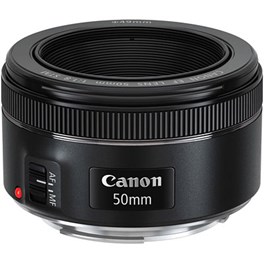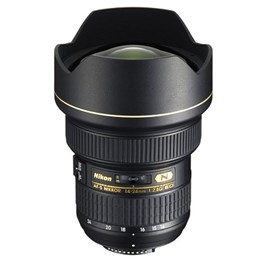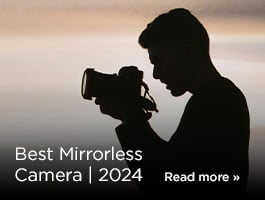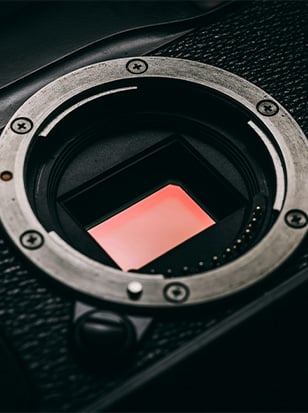
If you’ve got a DSLR, you need to kit it out with the best DSLR lenses – and that’s where we come in. We’ve picked out the DSLR lenses across the major systems that have impressed our team the most. Whether you’re looking for an affordable telephoto, a premium wide-angle zoom, a travel-friendly lens or something else entirely, we should be able to help.
In this guide, we have focused on full-frame DSLR lenses, as these can be used with all cameras in their respective systems. If you are using a DSLR with a smaller APS-C sensor, you may want to have a look at dedicated crop-sensor lenses – for Canon, these are denoted as “EF-S”; Nikon’s are “DX” lenses; and Pentax’s are generally designated with “DA”.
This guide isn’t a full, comprehensive guide to all the DSLR systems – these are simply a selection of lenses that we think are worth your attention. We’ve split the guide up by lens mount to make it easier to navigate, and have aimed to include lenses at a range of price points. So, let’s take a closer look.
Best Canon EF Lenses
While it may not see as many new lenses produced as it did in its heyday, you can’t go wrong with the brilliant Canon EF mount. Having been steadily populated with lenses of all shapes and sizes over many years, EF-mount is now a system you could spend a happy photo-taking lifetime on – and thanks to the popularity of EOS DSLRs in filmmaking, there are plenty of great video lenses, too. Here are just a few of our top picks.
Canon EF 50mm f1.8 STM Lens
The Canon EF 50mm f1.8 STM lens is the successor to the incredibly popular 50mm f1.8 II. Extremely compact and lightweight (160g), the lens features an improved optical design and stepping motor (STM) technology. Its wide f/1.8 maximum aperture and standard 50mm focal length makes it ideal for a wide variety of photographic genres, including travel, portraiture, and everyday creative snapshots.
£129.00 View
Pros:
- Highly affordable
- All-purpose focal length
- Fast maximum aperture
Cons:
- Plastic build
- Not fully weather sealed
Lightweight, dependable, affordable – the Canon EF 50mm f1.8 STM is perhaps the ur-example of a “nifty fifty” lens. This is a term used to refer to an affordable lens in the all-purpose focal length of 50mm (or thereabouts), and there’s a case to be made that a lens in this format is a much better “starter” lens than the kinds of kit zooms that are normally shipped with entry-level cameras.
With a fast maximum aperture, this lens lets you keep shooting when the light gets low, and is also great for producing images with a shallow depth of field, aided by its seven-bladed aperture that produces beautiful bokeh. While it’s a full-frame lens, it also pairs well with Canon’s APS-C DSLRs; when mounted on one of these, it delivers an equivalent focal length of 80mm, making it ideal for portraiture.
Canon EF 100mm f2.8L Macro IS USM Lens
Introducing the Canon EF 100mm f/2.8L Macro IS USM lens. It is the first macro lens in the EOS line-up to feature image stabilisation, which makes it easy to capture amazing close-up shots without the need for a tripod. This is particular useful as I means you can go out, see the subject and photograph straight away before it hops or flies away! Thanks to its 9-blade circular aperture, you'll be able to create some beautiful background bokeh. Its solid L-Series construction is made up of 15 lens elements in 12 groups and even more impressively, the lens is water- and dust-resistant. This is a must-have lens for anyone who wants to explore macro photography.
£1,249.00 View
Pros:
- Absolutely dazzling sharpness
- Excellent stabilisation
- Life-size 1:1 reproduction
Cons:
- Stabilisation less effective at macro distances
For producing close-up images, the Canon EF 100mm f2.8L Macro IS USM is one of the best buys you can make. Its image quality is absolutely stunning, producing scintillating levels of detail even at close distances. It’s a “true” macro lens, with a 1:1 reproduction ratio, so even the smallest subjects can be rendered in exquisite detail. With an f2.8 aperture and nine-bladed aperture, the lens can also produce beautiful bokeh in the defocused areas of images.
Thanks to its sophisticated Image Stabilisation (IS) system, this lens makes handheld macro photography much more viable than is usually thought. This puts moving subjects such as live insects into play, and in general allows you to be much more reactive and quick on your feet. The autofocus is also snappy and capable, and there’s a full-time manual override function for those times you need to take control of the focusing for yourself.
Canon EF 35mm f1.4L II USM Lens
This is the Canon EF 35mm f1.4L II USM, a new wide angle L-series lens designed for professional photographers who want to capture the world with a natural perspective. Replacing the legendary EF 35mm f1.4L USM, this new lens is the first to feature Canon's newly developed Blue Spectrum Refractive optics. Together with Canon's high performance lens coatings, the EF 35mm f1.4L II USM delivers amazing results with improved contrast and minimal flare or ghosting.
£2,199.00 View
Pros:
- Stunning optical performance
- Focal length is perfect for documentary imagery
- L-series build with weather-sealing
Cons:
- Professional-level price
Canon’s L-series lenses are designed for professionals, inside and out. What this means is that on the inside they boast sophisticated optical designs, optimised to produce images of pitch-perfect sharpness right out to the corners of images. And on the outside, they are tough and weather-sealed, built to withstand the kinds of rigorous outdoor use that professional photographers and videographers will put them through.
And so it is with the Canon EF 35mm f1.4L II USM. This brilliant wide-angle prime boasts high-performance lens coatings for superior light transmission, and offers terrific low-light performance thanks to its large maximum aperture. The 35mm focal length makes it great for documentary photography, with a frame that’s broad without being distorted. Wedding and event photographers will also find this to be a handy lens, ideal for group shots. Its hardy build also means that you don’t need to worry about a little rainfall. It’s priced at the professional level, but as far as we’re concerned it still provides exceptional value for money.
Best Nikon F Lenses
The Nikon F system has a clutch of dazzling lenses available, whether you’re a committed enthusiast with a big budget or you’re just starting out. It’s worth browsing the full range in detail to get a sense of what’s on offer, but here to get you started are some particular standouts that our team recommends…
Pros:
- Brilliant value for money
- Generous zoom range
- Fast, sharp and lightweight
Cons:
- Fine detail not at the level of the pro lenses (as you’d expect)
- Variable maximum aperture
For our money, this is one of the best Nikon DSLR lenses for travel. Covering a broad focal length that’s favoured by professionals, the Nikon 70-300mm f4.5-5.6E ED VR AF-P blends impressive portability with whip-fast focusing and effective optical stabilisation. It’s designed to be toted around and used handheld, delivering sharp shots at speed without weighing you down too much.
Of course, none of this would mean anything if the quality wasn’t up to par. Thankfully, the 70-300mm lens impresses in this regard, with superb sharpness and contrast, thanks in part to the incorporation of extra-low dispersion glass in the optical design. Does it produce images on par with one of Nikon’s professional lenses if you zoom in 100% on the details? No, of course not – but that’s why it’s a quarter of the price. In terms of sheer value for money, this lens is practically unbeatable.
Nikon 14-24mm f2.8 G AF-S ED Lens
A wide-angle, fast aperture lens with a revolutionary optical design, the Nikon 14-24mm f2.8 G AF-S ED Lens features a Nano Crystal coating to reduce the effects of ghost and flare, and delivers edge-to-corner sharpness that can surpass that of equivalent fixed focal-length lenses. The Silent Wave Motor (SWM) feature provides swift autofocus with superior accuracy and ultra-quiet operation.
£1,749.00 View
Pros:
- Stunning corner-to-corner sharpness
- Moisture-resistant build
- Fast, quiet autofocusing
- Can’t take screw-on filters (but is compatible with Lee SW150 system)
A dazzling premium landscape lens, the Nikon 14-24mm f2.8 G AF-S ED delivers the kind of sharpness that pro shooters are looking for. With a sophisticated optical design, the 14-24mm lens maintains sharpness and quality right into the corners of images, letting you fill the frame with stunning vistas. Its constant aperture of f/2.8 means you can keep working at any focal length even when the light gets low, and the outer construction of the lens is moisture-resistant for outdoor use.
As it has a bulbous front element, this lens can’t take screw-on filters – however, it is compatible with the Lee Filters SW150 system, which is good news for landscape shooters who want to use NDs for long exposures, or ND Grads to control bright skies. It’s not a cheap lens, but it’ll prove its value many times over.
Nikon 20mm f1.8G AF-S NIKKOR ED Lens
The Nikon 20mm f/1.8G AF-S prime lens offers an ultra-wide perspective and fast f/1.8 maximum aperture for creative individuals looking to exaggerate perspectives and capture immersive images. Perfect for travel, landscape and architectural photography, the large f/1.8 aperture delivers a shallow depth of field, smooth bokeh and is exceptionally good in low-light environments.
£799.00 View
Pros:
- Silent Wave Motor autofocus
- Wide perspective
- Large aperture produces beautiful bokeh
Cons:
- Build is plastic rather than metal
A premium wide-angle prime, the Nikon 20mm f1.8G AF-S NIKKOR ED boasts plenty of features that make it well-suited to video as well as stills. For a starter there’s that vlog-friendly focal length, nice and wide, but there’s also the Silent Wave Motor autofocus system. Not only is this system quick, but it’s also (as the name implies) practically silent, meaning your videos won’t have their audio overwhelmed by whirring focusing motors.
The maximum aperture of f/1.8 gives you plenty of latitude for shallow depth of field, and we were particularly impressed by the rich quality of the bokeh in out-of-focus areas that this lens could produce. A sophisticated design of 13 elements in 11 groups ensures that image sharpness is high, with punchy contrast and excellent control of distortion and aberrations.
Best Pentax K Lenses
Pentax is still flying the DSLR flag, unlike other manufacturers, and has still been producing new cameras for its K-mount system in recent years. One thing the manufacturer is particularly known for is its extensive weather-sealing, ensuring its cameras and lenses are made for the rough outdoors – look for the “AW” (All Weather) acronym if you want a lens that is equipped in this way.
Pentax-DA* HD 11-18mm f2.8 ED DC AW Lens
This ultra-wide-angle zoom lens has been developed as the latest model of the new-generation Star series — a lens that provides exceptional image quality to be able to accommodate the super-high-performance digital cameras of the future. It delivers high-resolution, high-contrast images without blurring at the edges, and assures excellent imaging performance in high-grade digital photography, even at open aperture. In addition to an outstanding dustproof, weather-resistant construction, the lens provides a Focus Clamp Mechanism to lock focus at the desired focal point.
£1,219.00 View
Pros:
- Weather-resistant build
- Focus Clamp functionality locks down focal point
- Constant f/2.8 aperture
- Quick-Shift Focus lets you quickly swap to manual focusing
Cons:
- Professional price
For Pentax K-mount DSLR users who want the best of the best, this wide-angle zoom will admirably fit the bill. The Pentax 11-18mm f2.8 HD DA* ED DC AW Lens (with a zoom range equivalent to 17mm to 27.5mm in 35mm format) is a terrific entry Pentax’s premium Star series, boasting a large constant f/2.8 aperture and an optical design that delivers high-resolution, high-contrast images from edge to edge, with no blurring or distortion. The body is also dustproof and weather-resistant to match Pentax DSLRs, ensuring the lens is perfect for outdoor use.
With a high-grade, multi-layer HD Coating to reduce reflections, a unique Focus Clamp Mechanism that completely locks down the focal point, and smooth focusing operation thanks to the DC motor, this is a lens that’s built to impress in all areas. The Focus Clamp also offers some useful extra features for outdoor shooting, such as space for wrapping heating wires round the lens barrel to prevent its inner workings from being affected by condensation, and there’s also a Quick-Shift Focus System for quickly switching to manual focus operation when you need to. This is a superb lens for Pentax K-mount.
Pentax-FA HD 35mm f2 Lens
The Pentax 35mm f2 HD FA lens is modelled on the popular SMC FA35mmF2A film-format lens. A high-grade, multi-layer HD Coating has been applied to the optical elements to produce high-contrast images with edge-to-edge sharpness and free of flare and ghost images; the highly stain-repellent SP Coating has been applied to the front surface to improve the lens's usability in outdoor locations. The exterior has been totally redesigned to match the design of latest PENTAX K-mount digital SLR models, while its compact, portable body makes it a perfect everyday-use lens.
£359.00 View
Pros:
- Super-lightweight build
- High-grade coatings reduce reflections
- Aperture ring
Cons:
- Autofocus drive can be noisy
Another superb optic for Pentax shooters, the Pentax 35mm f2 HD FA’s optical elements have been treated with a high-grade, multi-layer coating in order to produce high-contrast images that are sharp from edge to edge and free from flare and ghosting. The lens has also been treated with Pentax’s stain-resistant SP Coating, keeping its front element smear-free and making the optic more useful for outdoor work.
The exterior design of the Pentax 35mm f2 HD FA has been revamped to be more in line with Pentax’s latest DSLRs, mirroring that of DA- and D FA-series lenses. It provides a 35mm field of view when mounted on a full-frame camera and 53.5mm when attached to an APS-C DSLR, and it also has a minimum focusing distance of 0.3m, allowing you to get nice and close to your subjects. Weighing just 193g, the lens is perfect for travel and exploring, designed to be extremely compact and easy to bring to wherever your images take you. Explore your Pentax K-mount possibilities with this sophisticated, affordable prime lens.
Best Multi-Mount Lenses
Finally, we’re rounding out this guide with a selection of lenses that are available for multiple different systems. DSLR mounts have been open to third-party manufacturers for a long time, and so we’ve seen plenty of terrific lenses arrive for these systems, from affordable budget options to high-end optics designed for professionals. Here are a few of our team’s favourites…
Sigma 150-600mm f5-6.3 Contemporary DG OS HSM Lens for Canon EF
The Sigma 150-600mm f5-6.3 Contemporary DG OS HSM Lens is a hyper-telephoto lens that features a lightweight and compact design making prolonged handheld shoots more comfortable. The lens offers excellent optical performance thanks to the incorporation of 1 FLD and 3 SLD glass elements, optimisation of lens power distribution, and minimised chromatic aberration of magnification. It is part of SIGMA's Contemporary range of lenses whose purpose is to produce lenses of higher usability but with similar specifications to SIGMA's Sport series lenses.
£899.00 View
Pros:
- Can be bought with 1.4x teleconverter
- Lightweight for a lens of its class
- Sophisticated optical stabilisation function
Cons:
- Not fully weather-sealed
Fits: Canon EF, Nikon F, Sigma SA
This agile 150-600mm lens for full-frame DSLRs has found its way into many kit bags over the years. It makes sense – the versatile long focal range puts sports, wildlife and travel photography into play, while the relatively lightweight build makes the lens just under 2kg. That’s lightweight for a lens in this class, and it makes handheld shooting much more practical than it is with heavier telephotos.
Sigma has leaned into this by packing in a sophisticated Optical Stabiliser Function (OS), with an incorporated Acceleration Sensor. This feature has two modes – one for day-to-day photography, and the other specifically for motorsports and panning shots. In both cases, it makes the long focal length much more usable, and increases your hit rate of sharp shots. There is weather sealing around the gasket and water- and oil-repellent coatings on the front and rear of the lens – though be aware that the lens as a whole is not fully weather-sealed.
Pros:
- Can be bought with 1.4x teleconverter
- Lightweight for a lens of its class
- Sophisticated optical stabilisation function
Cons:
- Not fully weather-sealed
Fits: Canon EF, Nikon F, Sigma SA
This agile 150-600mm lens for full-frame DSLRs has found its way into many kit bags over the years. It makes sense – the versatile long focal range puts sports, wildlife and travel photography into play, while the relatively lightweight build makes the lens just under 2kg. That’s lightweight for a lens in this class, and it makes handheld shooting much more practical than it is with heavier telephotos.
Sigma has leaned into this by packing in a sophisticated Optical Stabiliser Function (OS), with an incorporated Acceleration Sensor. This feature has two modes – one for day-to-day photography, and the other specifically for motorsports and panning shots. In both cases, it makes the long focal length much more usable, and increases your hit rate of sharp shots. There is weather sealing around the gasket and water- and oil-repellent coatings on the front and rear of the lens – though be aware that the lens as a whole is not fully weather-sealed.
Zeiss 100mm f1.4 Otus ZE Lens - Canon EF Mount
The ZEISS Otus f/1.4 100mm lens is for photographers who do not want to make any compromises concerning image and build quality. Whether in the studio or on-the-go, for portrait or product photography, the tele focal length delivers high resolution and outstanding definition in any situation - even at maximum aperture.
£4,200.00 View
Pros:
- Outstanding definition and sharpness
- Quality holds up when used wide open
- Smooth focusing action
Cons:
- Manual focus only
- Very expensive
Fits: Canon EF, Nikon F
Accept no compromises. If you’re a Canon or Nikon full-frame DSLR user and you absolutely need to have the best of the best, the new Zeiss 100mm f1.4 Otus ZE Lens is the one for you. A telephoto prime made with the incredible attention to detail and quality that Zeiss is known for, the Zeiss 100mm f1.4 Otus ZE Lens provides smooth mechanical operation and beautifully engineered internal focusing, ensuring a consistent centre of gravity that makes it a joy to handle.
Images are tack-sharp and resplendent thanks to the sophisticated internal construction of 14 elements in 11 groups, and the Otus lens also makes use of Zeiss’s T* coating to completely banish reflections for extremely high-contrast results. If you’re shooting portraits this is the perfect lens, with that flattering focal length and large maximum aperture, but really this is a lens that practically any Canon or Nikon photographer could find a use for. It’s beautifully made, with astounding attention to detail, and it’s everything you would expect from Zeiss.

FAQs
Can I use any lens with my DSLR camera?
Not all lenses are compatible with every DSLR camera. It depends on the camera's mount type; Canon, Nikon, and Sony DSLRs each have their own mounts, so it’s essential to check if a lens is designed for your camera. Some third-party manufacturers like Sigma and Tamron offer lenses for multiple mounts, making them a versatile option.
What is the difference between EF and EF-S lenses?
EF lenses are designed for Canon full-frame and APS-C DSLRs, while EF-S lenses are specifically for Canon APS-C models. EF lenses can be used on both full-frame and APS-C cameras, but EF-S lenses cannot be used on full-frame bodies. EF-S lenses are usually lighter and more affordable, making them ideal for beginners and those on a budget.
What is the best lens for portrait photography?
The best lenses for portrait photography are usually prime lenses with a focal length between 50mm and 85mm. This is because they offer a flattering perspective and excellent background blur (bokeh). Check out our dedicated guide to the best lenses for portrait photography.
How do we decide?
Our in-house photography experts, store staff and partners all work collaboratively to pour over our guides and tips articles. We also consider emerging trends and customer feedback to make sure our guides are always up-to-date and reflective of what people are truly looking for. By curating only the best products, our guides provide trustworthy recommendations, making it easier for customers to make informed choices with confidence.
If you would like more advice on any purchase our contact centre staff are here to help. Alternatively, you can reach us via email or social media. And don't forget. If you were to purchase anything based on our recommendations you'll be covered by our full returns policy
















